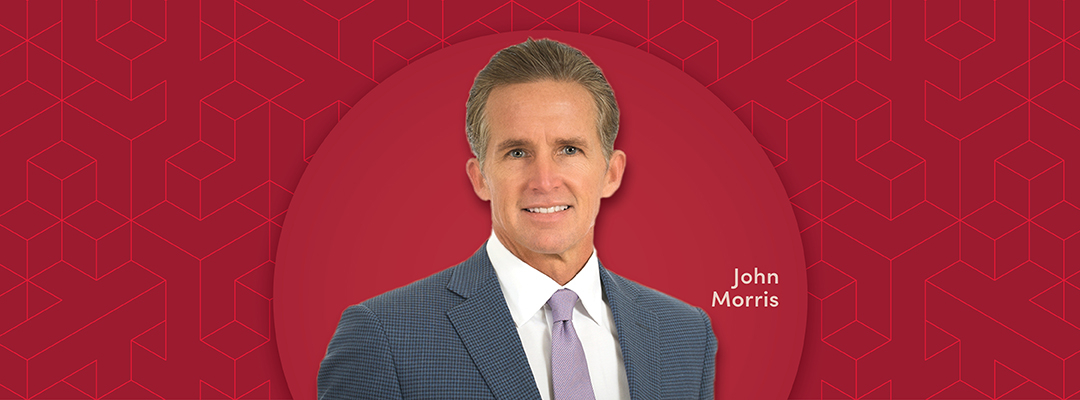CBRE just announced a new Americas retail leader. His primary expertise? The industrial sector. SCT contributing editor Joel Groover spoke with John Morris, whose prior role at CBRE was executive managing director of industrial and logistics for the Americas. Morris will retain that title, as well. His new retail role replaces former global retail president Anthony Buono.

In your new position, you lead more than 1,600 brokers, strategic consultants and researchers in both industrial/logistics and retail. Leadership of these two practices traditionally has been separate. I assume this has a lot to do with the shift toward click-and-collect and same-day delivery. Some are even talking about the merger of retail and industrial real estate.
We believe fundamentally that there is a common space between the two. However, one thing is clear: The two businesses are not merging. There will still be plenty of demand for separate and distinct intelligence, data, market information and advice. However, with every passing day, the need is growing among our clients to receive information and advice in both of these areas at the same time. Think of our industrial and retail platforms as islands. Between them is a third island. While it used to be small, that convergence point is growing rapidly. We need to build bridges to it because, increasingly, we’re going to be crossing each other’s paths and working together much more so than in the past.
OK, so if I’m part of a retailer’s real estate committee, maybe my focus in the past was on finding new sites and trimming underperforming stores. You’re saying that conversations about how the industrial and logistics side fits in need to happen earlier and more often?
That’s right. But the businesses are not integrating. They are partnering and sharing a common space. As we see it, that’s where our clients are asking us to go and need to go. CBRE was talking about this pre-COVID-19, for sure, but it’s clearer to everyone now that decision makers in retail and industrial need to be in the same room. Our job is to come prepared to answer the questions that come up. They could be related to the customer — psychographics, demographics, credit card swipes, consumer traffic patterns, etc. — or everything having to do with inventory and logistics. It’s all one conversation now.
And from a brokerage standpoint, maybe you’ve got a retail tenant representative scouting for space for that expanding chain while a CBRE industrial specialist is looking for space related to fulfillment and logistics, in tandem?
That is the best model. What our clients need is expertise. It wouldn’t make sense to ask a smart, experienced, well-informed retail broker to suddenly focus on warehouse space, but if retail and industrial specialists work together, that puts more options in front of the client: “Here are three stores. And here’s one that’s large enough to put an actual warehouse system in the back. And here’s a depot in the Bronx, as well as another facility in the Meadowlands that just became vacant. Oh, and we’ve got three developers who would love to do a build-to-suit for you.” When you move one piece of that network, the rest of it has to move; it’s all interconnected. Now more than ever, you have to find the best customer experience and the lowest-cost option.
And looking at both industrial and retail real estate together is a route to that. How about some of the trends you’re looking at right now like automation and microfulfillment centers?
When you’re talking about, say, a 1 million-square-foot warehouse, automation is the answer to speeding up delivery and getting a handle on challenges related to labor costs and availability. This is precisely why such buildings now cost more than twice as much per square foot than just 10 years ago. They’re getting bigger, better and faster. But we’re also going to see more automation within the store. Microfulfillment centers could become part of the mix soon. As the average size of a retail box continues to come down, retailers will be more comfortable with a model in which maybe a third of the square footage is set aside for fulfillment. They’ll want to be able to fulfill that order — buy online, pick up from store, ship from store — really quickly. That’s a bit of an expensive proposition for most markets today, but it could change. Another trend we’re watching closely is the effect of more people moving out of urban cores, which is what’s happening in Los Angeles, New York and Chicago.
How will that affect industrial and retail?
Let’s say urban high street rental rates eventually go down and property values in the suburbs do better. Maybe the center of Manhattan is no longer where you need to be to deliver to the most people. The focus could shift farther out, where property is cheaper and where trucks move more easily, so one consequence of this could be more vacant big boxes in the suburbs being converted into fulfillment centers.
CBRE also has made Bill Wright retail leader of platform and markets. Could you talk about his role?
Bill has 17 years of experience at CBRE in both brokerage and management roles, most recently as head of our retail and advisory transaction group for a 10-state region in the Midwest. He’ll continue to have those regional responsibilities but will also oversee the development of our retail platform nationwide. I think of Bill as my retail subject matter expert and unofficial COO. Bill has the retail background to run a brokerage and advisory business day to day. My role is to take a strategic view of where retail and industrial real estate are headed.


